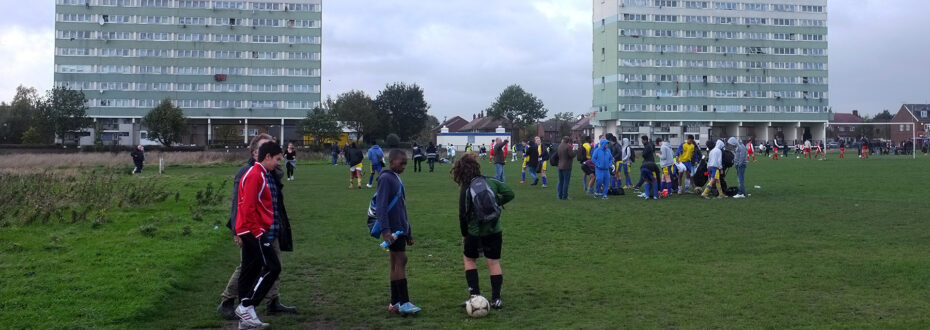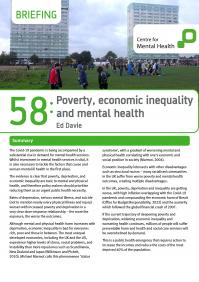Ed Davie
The Covid-19 pandemic is being accompanied by a substantial rise in demand for mental health services. Whilst investment in mental health services is vital, it is also necessary to tackle the factors that cause and worsen mental ill health in the first place.
Poverty, economic inequality and mental health, by Ed Davie, explores evidence about the links between these factors, showing that living in poverty increases people’s risk of mental health difficulties, and that more unequal societies have higher overall levels of mental ill health. The briefing also demonstrates that poverty and economic inequality intersect with structural racism to undermine the mental health of racialised and marginalised groups in society.
The evidence is clear that poverty, deprivation and economic inequality are toxic to mental and physical health. Policy makers need to prioritise reducing them as an urgent public health necessity.
The briefing calls for concerted and concrete actions to improve mental health by increasing the incomes and reducing the costs of the poorest people in society. These include increasing benefits and paying the Living Wage, help with housing and childcare costs for the least well-off, and improving access to vital services in the most deprived areas.





